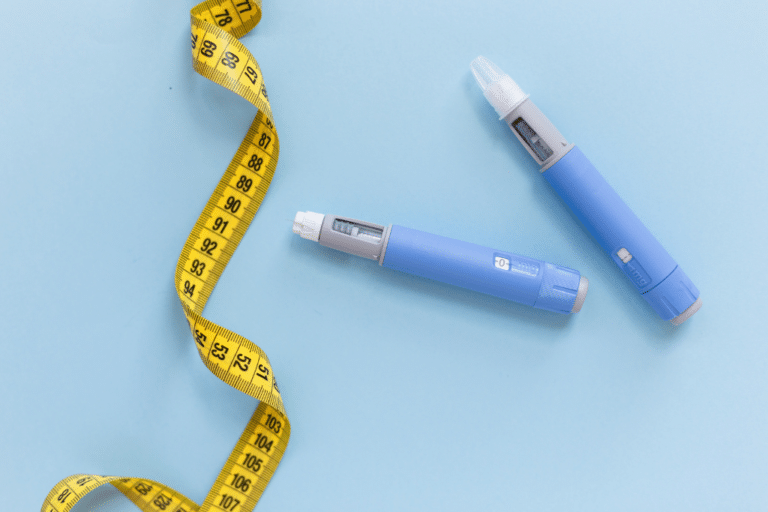Sex and Menopause

Sexual difficulties around the time of perimenopause and menopause are incredibly common. Approximately 60% of women experience a low sex drive that causes distress, 45% experience pain during sex, and a whopping 80% report relationship difficulties during this time. Low libido and sexual difficulties can significantly affect quality of life, self-confidence, and relationships. Lets take a closer look at what’s going on and what you can do about it.
The Role of Hormones
Oestrogen and testosterone are incredibly important for a healthy sex life. These hormones act on the brain to make us more responsive to sexual stimuli and help us enjoy sex. They also maintain the health of our vaginas and vulvas, allowing us to become physically aroused and lubricated, making sex comfortable and pleasurable. When these hormones decrease around menopause, it can have a significant impact on our sex lives and libido. Additionally, other menopausal symptoms such as hot flushes, insomnia, mood changes, and irritability can further affect libido.
The Domino Effect of Menopausal Symptoms
Coping with menopausal symptoms and managing the challenges of midlife can create a domino effect. Midlife women often juggle work, family, friendships, and many other responsibilities. Stress, low mood, anxiety, or overwhelm can significantly impact overall well-being, sex drive, and relationships. Menopausal symptoms can compound this further. For example, difficulty in arousal and lubrication can make sex painful, leading to avoidance and a drop in desire. Night sweats can lead to exhaustion, reducing the motivation and energy to have sex. Mood swings and irritability may increase relationship difficulties and create a lack of connection.
The Impact of long-term relationships
Sexual desire can evolve in long-term relationships, and it’s important to understand that this is not always a sign of a problem. At the start of a relationship, there is often a surge of sexual energy and desire. However, over time, familiarity and the demands of day-to-day life can lead to a reduction in spontaneous sex drive and desire.
It’s beneficial to understand and explore these changes. Dr. Karen Gurney’s excellent book, Mind The Gap, delves into the science of sex and desire, explaining how it is possible to feel little to no spontaneous desire while maintaining a happy and mutually satisfying sex life in the long term.
Is Sex Important?
Many women feel that maintaining a satisfying sex life is important to them and their relationships with their partners. In fact, 84%[1] of perimenopausal and menopausal women believe an active sex life is important. There is substantial evidence that sex, either alone or with a partner, is beneficial for physical and mental health. It keeps your pelvic floor strong and improves vaginal health by enhancing blood flow and collagen production. It’s good for your heart, can lower blood pressure, and boost your immune system. It benefits mental health by improving sleep, reducing stress, and lowering anxiety. Sex can also improve relationship intimacy and satisfaction.
So What Can We Do?
There are many ways to address sexual difficulties during menopause. Here are some options:
The Importance of self care
Feeling stressed, depressed, anxious, or overwhelmed can significantly impact your overall well-being and sex drive. Menopause can be a very challenging time. It is therefore even more important to make time to relax and do things you enjoy. Consider daily meditation or mindful practices. If you are struggling, it’s important to reach out and ask for help. If you would like to discuss your symptoms with Dr. Jayne Forrester-Paton, you can book an appointment here.
Hormone Replacement Therapy (HRT)
HRT is the most effective treatment for menopausal symptoms. Not only can it help with hot flushes and night sweats but it can help maintain vaginal and vulval health, therefore enabling more pleasurable sex. If you are experiencing a low sex drive, oestrogen may be better if given through the skin rather than in tablet form, as the latter can potentially lower libido.
Testosterone Therapy
There is evidence that testosterone can be beneficial for women experiencing a low sex drive around the time of menopause. Studies have shown that women experienced improvements in arousal, frequency of sex, pleasure, ability to orgasm, and sexual self-image. You can read more about testosterone here.
Vaginal Oestrogen
Low oestrogen levels can cause vaginal or vulval symptoms, including burning, itching, dryness, and even skin splitting. Vaginal oestrogen is safe and effective. It can be used on its own or alongside HRT. It treats vaginal and urinary symptoms and does not increase the risk of breast cancer or blood clots.
Vaginal Moisturizers and Lubricants
Regular use of vaginal moisturizers can be very effective, as the menopausal vulva and vagina are sensitive to friction and irritation. Lubricants are great for making sex more comfortable. It’s important to choose a product that is pH-matched to the vagina and doesn’t contain perfumes or potential irritants. Combining oil-based and water-based lubricants can enhance the experience. Be aware that lubricants can affect the integrity of condoms.
Vibrators
If you have not explored vibrators before, menopause can be an excellent time to start. Vibrators can be fun to use and help achieve orgasm. They come in various shapes and sizes; some are designed for clitoral stimulation, while others are intended for internal use. They can be used alone or with a partner to help with orgasm and improve blood flow and vaginal elasticity.
Masturbation
Masturbation can help you relax and get to know your body better. Many women find that sensation changes, and masturbation can be a great way to understand what gives you pleasure. Understanding what you like can also lead to improved sex with your partner.
Think Sex
Our brain plays a significant role in sex drive. Regularly thinking about sex can strengthen your libido. Think about what fantasies you have, try reading erotic literature, or listening to audio books.
Redefining Sex
It is common to think of sex as meaning only penetrative sex and to consider this the most important aspect. Menopause can be an excellent opportunity to change your narrative about sex. Explore different techniques, including oral sex, massage, mutual masturbation, or anything that you find interesting or pleasurable. Changing things up can really stimulate libido.
Communication with Your Partner
Talk to your partner about what you like and don’t like. If sex needs to be off the table for a while, that’s okay. Taking the pressure off and finding other ways to stay intimate can help maintain your relationship.
In Summary
Menopause doesn’t mean the end of a satisfying sex life. With the right approach and support, you can continue to enjoy a fulfilling and healthy sex life during and after menopause. If you would like to discuss your symptoms with Dr Jayne Forrester-Paton please see below to book an appointment.
[1] Cumming GP, Currie HD, Moncur R, Lee AJ. Web-based survey on the effect of menopause on women’s libido in a computer-literate population. Menopause Int. 2009 Mar;15(1):8-12. doi: 10.1258/mi.2009.009001. PMID: 19237616.
Latest Posts



Book an initial consultation
Your initial 45 minute consultation can be conducted in person in either our Cardiff or Penarth clinic locations or remotely via telephone or video link. The initial consultation is designed to explore your needs and medical history and agree a personal treatment plan, advising you on HRT, non-hormonal treatments or lifestyle changes as appropriate.